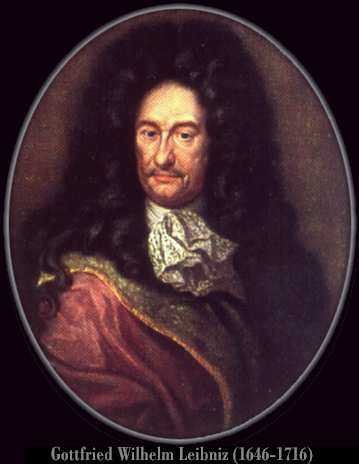Biography (much abbridged)
 4
4
Gottfried Wilhelm Leibniz was born in Leipzig in what is now Germany in 1646. Despite being cursed with the name Gottfried and the death of his father at age 6 by the age of twenty Leibniz accelled in all manner of academics. This includes Latin, Greek, philosophy, theology, law and most importantly mathematics (4). In Leipzig he was refused his law degree and subsequently moved to Nuremburg where he wrote an essay dedicated to the Elector (a position in the Holy Roman Empire) of Mainz which subsequently won him an appointment on a committee which reviewed several statutes(4). It was through this position that he won a diplomatic post through which Leibniz found himself in Paris.
It was in Paris that Leibniz met Christian Huygens. Strangely as Leibniz was already an accomplished mathemetician (having written De Arte Combinatoria which translates to on the art of combinations in 1666)(1). In 1673 the elector of Mainz died and Leibniz entered the service of the Brunswick family. Then in 1676 he took the post of (well paid post might i add) of librarian to the ducal library where he remained for the rest of his life. This cushy job afforded him more free time for his interests. The fruits of this were immediately evident when from 1675-77 he worked to develop integral and differential calculus into a nearly coherent system, though it was not published until 1684. In approximately ten years from 1682 to 1692 Leibniz cranked out the bulk of his work. Most of these works were published in a journal called Acta Eruditorium which was started up by him and Otto Menke(4).
The last twenty five or so years of Leibniz's life was more devoted to writing philosophy rather than mathematics. His philosophy tended to center around what he called monads. Infintessimal things which made up all forces. Later in his life he was embroiled in a bitter dispute with Sir Isaac Newton. The dispute was over whether Leibniz had invented the calculus independently of Isaac Newton or whether he had copied the ideas. His patron, Duke George of Hannover was crowned king of England in 1714. Unfortunately this did not benefit Leibniz as he was cast aside and forbidden to enter England. This resulted in Leibniz spending the remaining 2 years of his life in destitute.